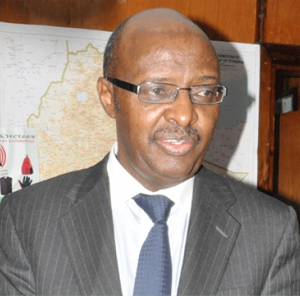Is “B†Satisfactory?
 Ethiopia received its first sovereign credit rating from the top global agencies.
Ethiopia received its first sovereign credit rating from the top global agencies.
Credit ratings agency Fitch last week gave Ethiopia a long-term foreign and local currency Issuer Default Debt Rating (IDR) of ‘B’ with a stable outlook, putting the country on par with Kenyan and Ugandan ratings. Standard & Poor’s (S&P) assigned Ethiopia ‘B/B’ foreign and local currency ratings. Moody’s joined its rivals S&P and Fitch in rating the country as a highly speculative destination by putting the foreign currency sovereign credit rating as “B1â€, one notch above the “B†given by its rivals. On the aftermath, Sufian Ahmed, Minister of Finance and Economic Development, met with local journalists and foreign correspondents based in Addis Ababa for a press conference to discuss the findings of the rating companies. Yohannes Anberbir of The Reporter attended the press conference. Excerpts:
Question: Can you briefly tell us the process that led to Ethiopia securing a sovereign credit rating for the first time?
Sufian Ahmed: This is the first time that Ethiopia solicited a sovereign credit rating form internationally accepted rating agencies. The three rating companies were furnished with all the necessary data from the Ethiopian government’s side and they visited the country a month or so ago. During their visit, they met with several local organizations, embassies and members of the private sector. After looking into the data and the information given to them, they came up with this rating for Ethiopia. First of all, this is the first time that Ethiopia has been rated by these three major credit rating agencies. So by itself this indicates that we are committed and ready to provide all the necessary information regarding our economy and social sectors and clearly communicate our policies. The reason why the government has decided to undertake this exercise is mainly to help investors, mostly foreign direct investors, to have an objective assessment of the level of risk they would face coming to Ethiopia. Be it in the area of the economy, politics, peace or stability, the rating exercise will give the investors the true reality on the ground. Of course this is the first time, and it will be an annual exercise. Depending on our performance, we would like and expect to maintain our current rating if not show an improvement.
This result offers the government with the opportunity to tap into the international capital market. Of course, that is, if we decide to enter the capital market. As far as the capital market is concerned, the door is more or less open now and if the government decides, it can issue a sovereign bond to diversify our source of finances in our effort to undertake the major projects that we have planned. As to issuing sovereign bond, we have not yet decided because it depends on two things. First, entering into the capital market usually depends on the global financial situations, we don’t know what will happen in the future; some of the major economies seems to be recovering from the crisis while some are still in trouble. So in the future, we have the opportunity to issue a bond, but we are exploring our options now.
Finally, the agencies also assessed our fiscal situations and concluded that it is very strong and prudent. Budget deficit is less than two percent persistently over the past decade. They also noted the quality of the budget that it is mainly allocated to poverty reduction, infrastructure development and on provision of basic services.
We are satisfied, and we expect this rating would offer rich insight as to the level of the risk, the perceived risk, that over the years have been associated with Africa; it would and should show that risk has been significantly reduced.
Read more at: The Reporter



